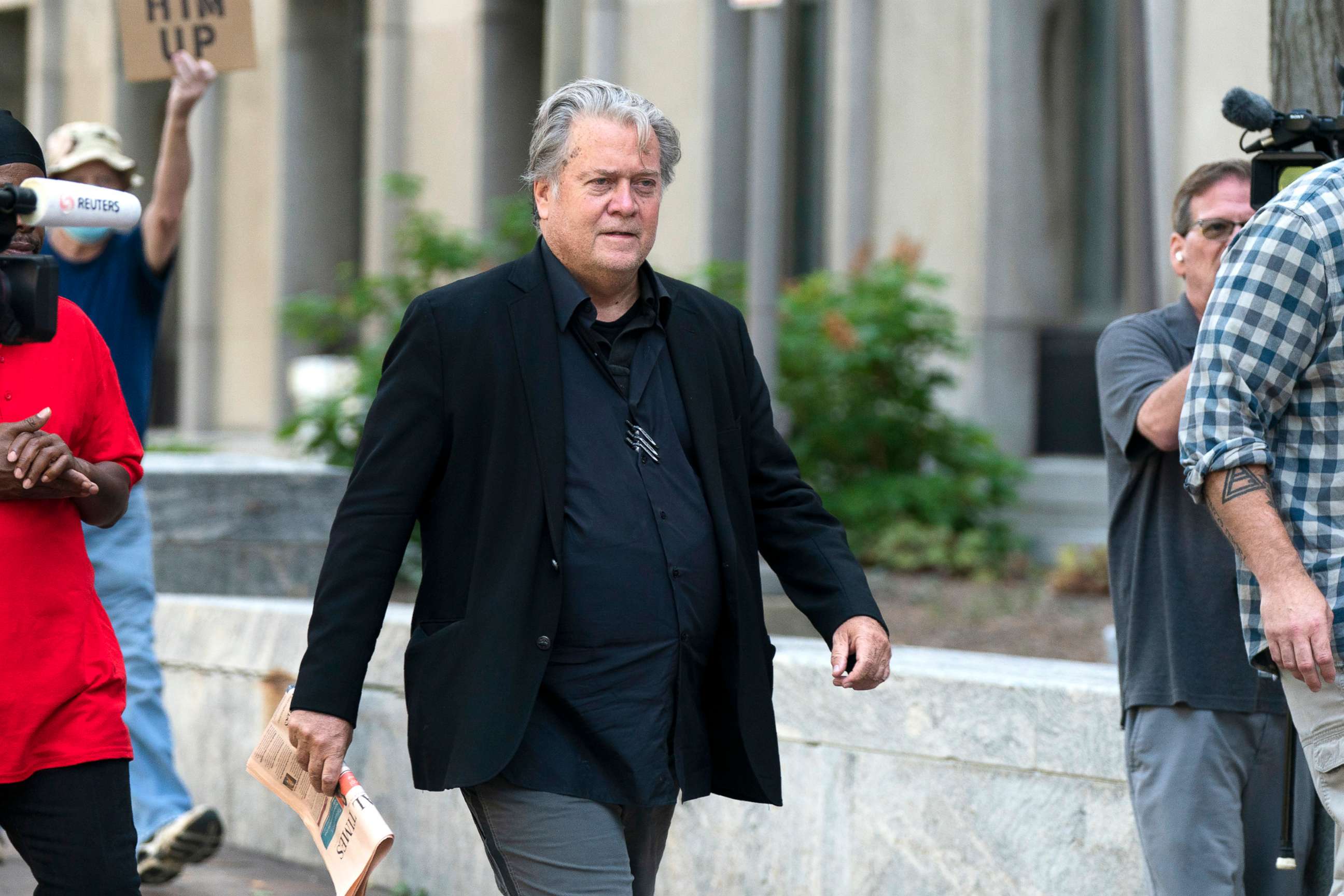Defense argues Bannon was constrained by questions over executive privilege
In the defense's ongoing cross examination of Jan. 6 committee staffer Kirstin Amerling, attorney Evan Corcoran continued to stress how Bannon was prevented from testifying due to the right of executive privilege that protects confidential communication with members of the executive branch.
But Amerling testified that there are two main issues with such a claim.
First, she said, some of what the subpoena requested "had nothing to do with communication with the former president" and "could not possibly be reached by executive privilege" -- especially Bannon's communications with campaign advisers, members of Congress and other private parties, as well as information related to Bannon's podcast, she testified.
In addition, despite what others may have said, "The president had not formally or informally invoked executive privilege," Amerling said. "It hadn't been invoked."
Yet Bannon still refused to comply with the subpoena, despite having no legal grounds to do so, she said.
Amerling reiterated that by the time the committee met to decide whether to pursue contempt charges, "there had been extensive back-and-forth already between the select committee and the defendant's attorney about the issue of executive privilege, and the select committee had made its position clear."
Corcoran also argued that Bannon didn't comply with the subpoena right away because he expected the deadline would ultimately change, due to the fact that it's common for subpoena deadlines to shift.
Amerling, however, testified that Bannon's situation was different.
"When witnesses are cooperating with the committee and indicate they are willing to provide testimony, it is not unusual to have some back-and-forth about the dates that they will appear," she said. However, she said, "it is very unusual for witnesses who receive a subpoena to say outright they will not comply."
In his questions, Corcoran also suggested that Amerling might be a biased witness, noting that she had donated to Democratic causes in the past, and that she is a member of the same book club as one of the prosecutors in the case, Molly Gaston.
"So you're in a book club with the prosecutor in this case?" Corcoran asked.
"We are," Amerling replied.
Amerling said that it had been some time -- perhaps as much as a year or more -- since she and Gaston both attended a meeting of the club. But she conceded that, with the types of people who are in the book club, it was "not unusual that we would talk about politics in some way or another."





